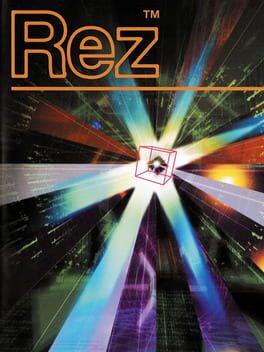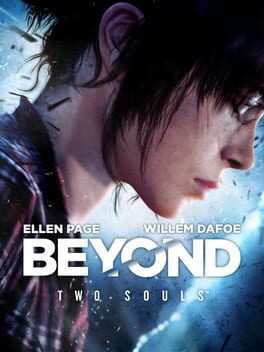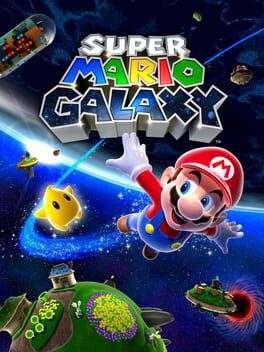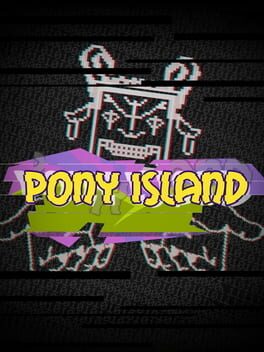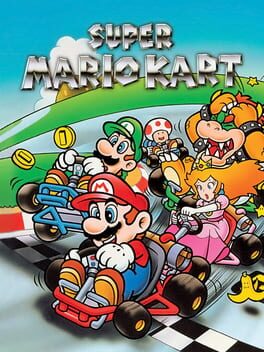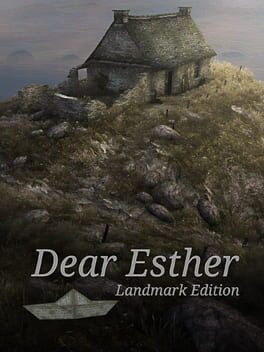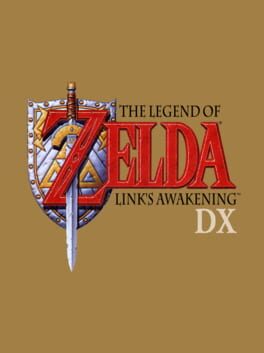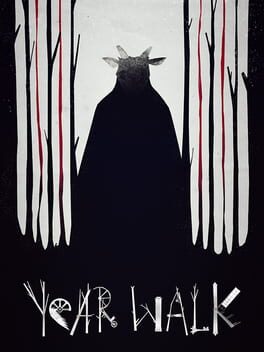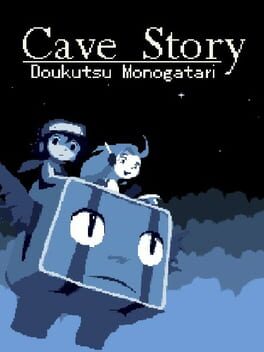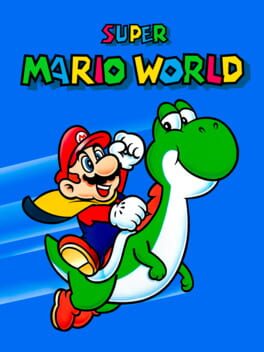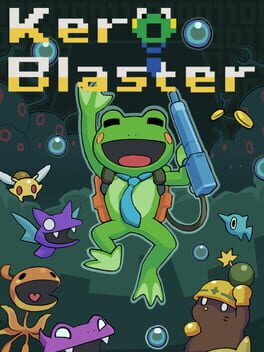antoinebeaumal
BACKER
2001
STAY ALERT – STAY ALERT - STAY ALERT – STAY ALERT - STAY ALERT – STAY ALERT –
BOOM TSSSS - BOOM TSSSS - BOOM TSSSS - BOOM TSSSS - BOOM TSSSS - BOOM TSSSS -
When I was a teenager, I used to see this game on the shelves of game shops and think to myself, 'Who would want to play that? It looks like an old, ugly arcade game.' How foolish I was.
Rez has so much style. It's actually quite difficult to describe because it's both a geometric and rhythmic experience. This game encapsulates a certain idea of 2000s techno music. Musically, it falls between trance, synthetic acid house, and hard tech. It's important to note that the artists who created the music for this game (Ken Ishii and Joujouka, at least) are recognized electronic music producers who were important in the 1990s and still are today. One wonders if the game was created from the music or vice versa.
The level design remains a mystery to me: it feels like constantly diving into a neon fractal in a world that defies all physics. Level 4 is particularly epic. The game operates solely on its flow, linking a certain form of visual abstraction that perfectly syncs with the electronic music played as a mix, not track by track. The game can truly take you to an 'out-of-body' state that only a nightclub with lasers, strobe lights, and smoke machines can evoke.
You can still feel Sega's total mastery over the arcade game genre.
BOOM TSSSS - BOOM TSSSS - BOOM TSSSS - BOOM TSSSS - BOOM TSSSS - BOOM TSSSS -
When I was a teenager, I used to see this game on the shelves of game shops and think to myself, 'Who would want to play that? It looks like an old, ugly arcade game.' How foolish I was.
Rez has so much style. It's actually quite difficult to describe because it's both a geometric and rhythmic experience. This game encapsulates a certain idea of 2000s techno music. Musically, it falls between trance, synthetic acid house, and hard tech. It's important to note that the artists who created the music for this game (Ken Ishii and Joujouka, at least) are recognized electronic music producers who were important in the 1990s and still are today. One wonders if the game was created from the music or vice versa.
The level design remains a mystery to me: it feels like constantly diving into a neon fractal in a world that defies all physics. Level 4 is particularly epic. The game operates solely on its flow, linking a certain form of visual abstraction that perfectly syncs with the electronic music played as a mix, not track by track. The game can truly take you to an 'out-of-body' state that only a nightclub with lasers, strobe lights, and smoke machines can evoke.
You can still feel Sega's total mastery over the arcade game genre.
2024
2013
If the game had a « skip the cutscene » feature, the game would be beatable in less than 20mn.
Joking aside, I almost feel empathy: they were trying so hard to do well, yet they failed in every direction.
Famous actors... but they're animated like lifeless puppets.
A complex narrative with various branches... but it hides an ultra-linear gameplay and a story full of constant flashbacks. It's also way too long.
Thrilling cutscenes ... but they're spoiled by the stiffness of the character animations. In comparison, Metal Gear Solid 1 managed to breathe life into a story with far fewer technical means.
Taking control of Jodie... but with tank-controls reminiscent of the worst PS1 titles.
Taking control of Aiden... but literally feeling nauseous because the camera is so sensitive. Moreover, there's no nuance in the interaction with this character: whether you snap someone's neck or press an elevator button, Aiden does it with the same intensity.
Dozens of characters ... who are all clichés of clichés.
I think in 20 years, we'll look back on this kind of game as the "golden age of video game B-movies."
Joking aside, I almost feel empathy: they were trying so hard to do well, yet they failed in every direction.
Famous actors... but they're animated like lifeless puppets.
A complex narrative with various branches... but it hides an ultra-linear gameplay and a story full of constant flashbacks. It's also way too long.
Thrilling cutscenes ... but they're spoiled by the stiffness of the character animations. In comparison, Metal Gear Solid 1 managed to breathe life into a story with far fewer technical means.
Taking control of Jodie... but with tank-controls reminiscent of the worst PS1 titles.
Taking control of Aiden... but literally feeling nauseous because the camera is so sensitive. Moreover, there's no nuance in the interaction with this character: whether you snap someone's neck or press an elevator button, Aiden does it with the same intensity.
Dozens of characters ... who are all clichés of clichés.
I think in 20 years, we'll look back on this kind of game as the "golden age of video game B-movies."
2007
I must admit that I was completely reluctant to use the Wii Remote. I also confess that attaching a Wii sensor to a 42-inch LG OLED screen with tape (yes, screens are now too thin to simply place the sensor on the screen) in 2024 is a unique and anachronistic experience. After finishing the game, I find that the Wii Remote actually encourages multitasking: moving Mario with one hand and grabbing stars with the other. The experience is truly unique, and I wonder how this game will be preserved in the future outside of its original support. I imagine the Switch version uses the second stick to mimic the Wii Remote aiming. The experience must inevitably be frustrating and awkward.
Massive crush. I've rarely been so engrossed in a 3D platformer. After my unsuccessful attempts with Mario 64 and Mario Sunshine, I am completely convinced by the controls. Big shout out to the developers responsible for the camera movements. Such mastery is truly impressive, especially in a game that defies gravity so much. Even if it comes at the expense of open worlds (and thus a more linear game), I much prefer scripted and refined camera movements like those in Mario Galaxy. I never felt the need to reorient the camera.
I think everything has already been said about Galaxy. I remain overall speechless at the creativity of the levels; the game always seems to renew itself without ever falling into repetition. Just majestic.
Massive crush. I've rarely been so engrossed in a 3D platformer. After my unsuccessful attempts with Mario 64 and Mario Sunshine, I am completely convinced by the controls. Big shout out to the developers responsible for the camera movements. Such mastery is truly impressive, especially in a game that defies gravity so much. Even if it comes at the expense of open worlds (and thus a more linear game), I much prefer scripted and refined camera movements like those in Mario Galaxy. I never felt the need to reorient the camera.
I think everything has already been said about Galaxy. I remain overall speechless at the creativity of the levels; the game always seems to renew itself without ever falling into repetition. Just majestic.
2016
This is 3 tricks pony: a buggy “endless runner, a glitchy puzzle game and a meta adventure. More than just a 'meta' commentary on what a video game is, I feel like the game pays homage to the flash games of the early 2000s. It plays quickly, and even though some phases may feel a bit redundant (the puzzle part, in my opinion), the game doesn't lack charm or ideas.
1992
Unless you're an aliasing fetishist or enjoy being humiliated by a blatantly unfair AI, there's no point in revisiting this first Mario Kart. Even though I have fond memories of it from my childhood, I must admit it hasn't aged well.
The game's difficulty is incredibly poorly balanced. The 50 and 100cc races are nearly impossible to lose because they're so simple. However, once you reach the special cup and the 150cc category, the game turns into SM domination and promptly punishes you for even the slightest micro-error. Honestly, 100% this game is truly one of the most punishing challenges I've ever subjected myself to :(
The game's difficulty is incredibly poorly balanced. The 50 and 100cc races are nearly impossible to lose because they're so simple. However, once you reach the special cup and the 150cc category, the game turns into SM domination and promptly punishes you for even the slightest micro-error. Honestly, 100% this game is truly one of the most punishing challenges I've ever subjected myself to :(
I have a lot of bias towards this game: I love it and I hate it. By the early 2000s, it was already established that the Zeldas were masterpieces, notably thanks to Ocarina of Time and Majora’s Mask. Not having a Nintendo 64, I didn’t have the chance to play them on their release day. The only Zelda I had played was Link’s Awakening on GameBoy Color in 1998, which I particularly loved. In 1999, I managed to find a copy of Link to the Past at a garage sale for a relatively high price (I believe it was 40€). Unfortunately, the game was in German, but I still tried to play it. I never managed to find the third medallion and remained stuck for a long time, excessively frustrated because I loved everything about the game. But the language barrier made the experience difficult. It was also impossible for me to use the manual (I only bought the cartridge), and I couldn't get my hands on a guide (this was in 1999, I remind you, I didn't have internet at home yet, and printed guides were unavailable at that time).
I think we forget that this kind of game can be particularly opaque and cryptic, even though LTTP is more accessible than the first installment of the saga. The impatient player then has two options to bypass the secrets of this game: the complete guide (and spoil the experience) or the hint for a boost. In this sense, the integration of the NPC who guides you for 30 rupees is a stroke of genius that I would have loved to discover as a child instead of raging on my own, cutting all the bushes in the game (I could have also learned German, what a noob)... Are there still players who will have a similar experience to mine nowadays? I posit here as a hypothesis that the lost player who does not have access to any form of "guidance" has practically disappeared.
Many critics rightly emphasized that LTTP has an absolutely gigantic semi-open world with the particular twist of the change thanks to the mirror. This part is especially remembered because it foreshadows the games to come. But when you really play this game, you forget that LTTP has a half of games close to the dungeon crawling genre, a genre immensely more popular at that time. Japan in particular was marked by the legacy of Wizardry. It's really fascinating to imagine that LTTP (and perhaps a major part of the Zelda series? I'm not an expert, so I'll remain cautious) was at the crossroads between open-world adventure and dungeon crawling. It raises the theoretical question: if the critics hadn't praised the open world of Zelda so much, would the series have become a series of dungeon games? In a parallel Bizarro world, would BOTW have looked like a Lunacid-type game and would Lunacid have been a game that pays homage to the open world? I'm totally digressing.
The game is truly a revolutionary masterpiece. The evolution between LTTP and The Legend of Zelda released 6 years earlier is staggering, even from a technical point of view. Although we live in completely different eras where graphics evolved extremely rapidly, it's amusing to think about this in perspective of a comparison between BOTW and TOTK, which also have almost 6 years apart and are, for all intents and purposes, identical.
Yet despite all the "objective" and qualitative data of this game, well ... I got a little bored in the middle of the game. The alternation between open-world and dungeons becomes a bit repetitive, but fortunately the end is amazing (since the ice dungeon, I would say).
A little annoyance on my part: trying to use online guides only as a last resort (for example, if I'm stuck for more than an hour), I managed relatively well until I got to Trinexx. Impossible for me to figure out how to defeat him on my own. Searching online, I discover that I need the "ice wand." I go to get it and I realize that I can never kill the dragon heads, even with 3 magic bars. I finally realize that my sword is only level 2. I realize that I completely missed the upgrades. Overall, it annoyed me because none of these items are necessary before. This kind of "dead end" is really annoying and discouraging. Without recourse to a guide, I would probably have given up at this point.
Another important point, in terms of narration, LTTP is in line with its predecessors: few dialogues, few memorable secondary characters. The game is more focused on its gameplay and level design while remaining relatively quiet. You either like it or you don't. Even though I struggle with games that are too talkative, I think I might have liked to be more involved in the world of Hyrule. LTTP remains very "gamey": I finished dungeon 5, let's go to dungeon 6. We generally don't care about the story, which is not a bad thing in itself. Add to that the fact that the game is generally very serious. It seems to me that the subsequent games often have more "dorky" moments.
Anyway, I'm glad to have turned this frustrating page of my existence.
I think we forget that this kind of game can be particularly opaque and cryptic, even though LTTP is more accessible than the first installment of the saga. The impatient player then has two options to bypass the secrets of this game: the complete guide (and spoil the experience) or the hint for a boost. In this sense, the integration of the NPC who guides you for 30 rupees is a stroke of genius that I would have loved to discover as a child instead of raging on my own, cutting all the bushes in the game (I could have also learned German, what a noob)... Are there still players who will have a similar experience to mine nowadays? I posit here as a hypothesis that the lost player who does not have access to any form of "guidance" has practically disappeared.
Many critics rightly emphasized that LTTP has an absolutely gigantic semi-open world with the particular twist of the change thanks to the mirror. This part is especially remembered because it foreshadows the games to come. But when you really play this game, you forget that LTTP has a half of games close to the dungeon crawling genre, a genre immensely more popular at that time. Japan in particular was marked by the legacy of Wizardry. It's really fascinating to imagine that LTTP (and perhaps a major part of the Zelda series? I'm not an expert, so I'll remain cautious) was at the crossroads between open-world adventure and dungeon crawling. It raises the theoretical question: if the critics hadn't praised the open world of Zelda so much, would the series have become a series of dungeon games? In a parallel Bizarro world, would BOTW have looked like a Lunacid-type game and would Lunacid have been a game that pays homage to the open world? I'm totally digressing.
The game is truly a revolutionary masterpiece. The evolution between LTTP and The Legend of Zelda released 6 years earlier is staggering, even from a technical point of view. Although we live in completely different eras where graphics evolved extremely rapidly, it's amusing to think about this in perspective of a comparison between BOTW and TOTK, which also have almost 6 years apart and are, for all intents and purposes, identical.
Yet despite all the "objective" and qualitative data of this game, well ... I got a little bored in the middle of the game. The alternation between open-world and dungeons becomes a bit repetitive, but fortunately the end is amazing (since the ice dungeon, I would say).
A little annoyance on my part: trying to use online guides only as a last resort (for example, if I'm stuck for more than an hour), I managed relatively well until I got to Trinexx. Impossible for me to figure out how to defeat him on my own. Searching online, I discover that I need the "ice wand." I go to get it and I realize that I can never kill the dragon heads, even with 3 magic bars. I finally realize that my sword is only level 2. I realize that I completely missed the upgrades. Overall, it annoyed me because none of these items are necessary before. This kind of "dead end" is really annoying and discouraging. Without recourse to a guide, I would probably have given up at this point.
Another important point, in terms of narration, LTTP is in line with its predecessors: few dialogues, few memorable secondary characters. The game is more focused on its gameplay and level design while remaining relatively quiet. You either like it or you don't. Even though I struggle with games that are too talkative, I think I might have liked to be more involved in the world of Hyrule. LTTP remains very "gamey": I finished dungeon 5, let's go to dungeon 6. We generally don't care about the story, which is not a bad thing in itself. Add to that the fact that the game is generally very serious. It seems to me that the subsequent games often have more "dorky" moments.
Anyway, I'm glad to have turned this frustrating page of my existence.
This game made me want to spend my mid-November vacation in Scotland. It's a clear proof that video games can have a negative influence.
The game is beautiful, especially the light effects, which are very well done. However, it's still a bit lacking in creating a real emotional connection. I also find that the writing is intentionally vague (which in itself is not a bad thing), but it's still frustrating.
The game is beautiful, especially the light effects, which are very well done. However, it's still a bit lacking in creating a real emotional connection. I also find that the writing is intentionally vague (which in itself is not a bad thing), but it's still frustrating.
This review contains spoilers
A Zelda game inspired by Twin Peaks that has nothing to do with the other Zeldas: if only spin-offs of well-known series could have the quality of this game.
Originally conceived as an adaptation of A Link to the Past, the game became something entirely different. The transition from SNES to GameBoy at the time often meant a degradation of the original product due to the technical limitations of the device. I had been traumatized by the GB version of Donkey Kong Country. Here, with Zelda, it's completely different; we're not faced with a 'lite' version. Even though the world of Link's Awakening is smaller in size than A Link to the Past, I felt more like this game added elements rather than removing them. We have more cutscenes, memorable characters, and more music (which is incredible, by the way).
Certainly, we return to a linear gameplay pattern, but the game's progression is exceptional. It feels like each 'square' of the map is used optimally. The size of the world, in my opinion, is ideal: neither too big nor too small. With each new item, we enjoy revisiting this world to discover new secrets, whereas A Link to the Past with its two parallel worlds seemed too large and confusing to me. Is Link's Awakening easier? If compared to its predecessors, the answer is clearly yes.
Spoilers: After discovering that the island is just a dream, I was struck by the fact that we view the game in a more melancholic light. Perhaps it's a metaphor for the player, but finishing the game means the disappearance of Koholint. The ambivalence in which we find ourselves is truly unique. After reading the mural, we enter the sixth dungeon and this music plays on loop, which I find particularly sad: https://www.youtube.com/watch?v=4X6UqQDmjBk
It's the first Zelda game that I played and finished (thanks to a magazine) that I absolutely loved. Almost 25 years later, the experience is almost the same. I played it with a smile.
Originally conceived as an adaptation of A Link to the Past, the game became something entirely different. The transition from SNES to GameBoy at the time often meant a degradation of the original product due to the technical limitations of the device. I had been traumatized by the GB version of Donkey Kong Country. Here, with Zelda, it's completely different; we're not faced with a 'lite' version. Even though the world of Link's Awakening is smaller in size than A Link to the Past, I felt more like this game added elements rather than removing them. We have more cutscenes, memorable characters, and more music (which is incredible, by the way).
Certainly, we return to a linear gameplay pattern, but the game's progression is exceptional. It feels like each 'square' of the map is used optimally. The size of the world, in my opinion, is ideal: neither too big nor too small. With each new item, we enjoy revisiting this world to discover new secrets, whereas A Link to the Past with its two parallel worlds seemed too large and confusing to me. Is Link's Awakening easier? If compared to its predecessors, the answer is clearly yes.
Spoilers: After discovering that the island is just a dream, I was struck by the fact that we view the game in a more melancholic light. Perhaps it's a metaphor for the player, but finishing the game means the disappearance of Koholint. The ambivalence in which we find ourselves is truly unique. After reading the mural, we enter the sixth dungeon and this music plays on loop, which I find particularly sad: https://www.youtube.com/watch?v=4X6UqQDmjBk
It's the first Zelda game that I played and finished (thanks to a magazine) that I absolutely loved. Almost 25 years later, the experience is almost the same. I played it with a smile.
1999
This is basically a "parenting fail" compilations
This game is a work of art, plain and simple. The atmosphere created is completely in symbiosis with the materials of its time. The vibrant and peculiar 3D of the PS1, its inability to render depth of field, the audio limitations that slow down the dialogues (it feels like being in a Rohmer film): remove one of these elements and the house of cards collapses. Remastering this title is impossible.
The game is TRULY frightening on many levels. To highlight just one element: the radio alarm. You always know there's an enemy nearby, but where? No jump scares: the game doesn't aim to scare us, but rather to terrorize us. I finished the game in 3 sessions and sometimes I was relieved to turn off the PlayStation because the atmosphere is so oppressive. My neck is still tense from this experience. Harry is never in a safe space; the player is always in danger.
The sound atmosphere and music, like any good horror film, are the scoliotic backbone of this hell. Between haunting drones and dark industrial sounds, the hearing is put to the test. Let it be known, I don't think I'll buy the vinyl to listen to it on a Sunday afternoon, unless I'm in need of an anxiety attack (aka never).
However, I must admit that I played it like a 'walking sim' by putting the game on 'easy' mode. The gameplay itself has aged relatively poorly, and the boss scenes are particularly bad. The interesting part lies in exploration and puzzle-solving. Its way of revealing the game's lore through objects and descriptions enhances immersion. I also have to admit that I am particularly a fan of the 'evolving' map system that prevents us from having to repeatedly open a locked door 15 times in a row. I look forward to playing the sequels
This game is a work of art, plain and simple. The atmosphere created is completely in symbiosis with the materials of its time. The vibrant and peculiar 3D of the PS1, its inability to render depth of field, the audio limitations that slow down the dialogues (it feels like being in a Rohmer film): remove one of these elements and the house of cards collapses. Remastering this title is impossible.
The game is TRULY frightening on many levels. To highlight just one element: the radio alarm. You always know there's an enemy nearby, but where? No jump scares: the game doesn't aim to scare us, but rather to terrorize us. I finished the game in 3 sessions and sometimes I was relieved to turn off the PlayStation because the atmosphere is so oppressive. My neck is still tense from this experience. Harry is never in a safe space; the player is always in danger.
The sound atmosphere and music, like any good horror film, are the scoliotic backbone of this hell. Between haunting drones and dark industrial sounds, the hearing is put to the test. Let it be known, I don't think I'll buy the vinyl to listen to it on a Sunday afternoon, unless I'm in need of an anxiety attack (aka never).
However, I must admit that I played it like a 'walking sim' by putting the game on 'easy' mode. The gameplay itself has aged relatively poorly, and the boss scenes are particularly bad. The interesting part lies in exploration and puzzle-solving. Its way of revealing the game's lore through objects and descriptions enhances immersion. I also have to admit that I am particularly a fan of the 'evolving' map system that prevents us from having to repeatedly open a locked door 15 times in a row. I look forward to playing the sequels
2012
« It's not about the destination, it's about the journey » blahblahblah. But can a 1-hour walking sim be qualified as a "journey"? What audacity.
It annoys me because I think I felt good into the game 15 minutes before the end. The scenery, the music, everything was there to please me, but here's the thing: it's too short. It leans more towards the arty side than the gamy one, and that's a shame.
It annoys me because I think I felt good into the game 15 minutes before the end. The scenery, the music, everything was there to please me, but here's the thing: it's too short. It leans more towards the arty side than the gamy one, and that's a shame.
2013
There is a German word that has always intrigued me: "Waldeinsamkeit," which roughly translates to "the feeling of solitude experienced in a forest." Even though Year Walk is Swedish and not German, I think this concept suits it perfectly. Unfortunately, being more of a mountain person at heart, I struggled to appreciate getting lost in this charming setting. The iPad version (to my knowledge?) lacks a map system, making the game more cumbersome.
Beyond that, the game falls into that precious category for me, which is "folkloric horror," alongside Mundaun, another game dear to my heart. The puzzles here are really well-crafted and balanced, although I found the final part slightly less interesting. It's worth noting that the game has a "good/bad ending" system that I find a bit ridiculous (was it really necessary, honestly?).
Lots of charm but underexploited.
Beyond that, the game falls into that precious category for me, which is "folkloric horror," alongside Mundaun, another game dear to my heart. The puzzles here are really well-crafted and balanced, although I found the final part slightly less interesting. It's worth noting that the game has a "good/bad ending" system that I find a bit ridiculous (was it really necessary, honestly?).
Lots of charm but underexploited.
2004
I'm glad I took the time on the OG of indie plateformer. Totally impressed by the fact that it's the sole creation of one man: what generosity. Like any great game, Cave Story has several layers that one discovers gradually, making the experience truly unique.
Layer 1: 'Wow, charming graphics and incredible music.'
Layer 2: 'Very good gameplay, the progression of armor and upgrades is really well thought out.'
Layer 3: 'Ah, but the level design works like a metroidvania.'
Layer 4: 'The bosses are really interesting and sometimes really brutal.'
Layer 5: 'There are really a lot of secret areas and parallel quests.'
Layer 6: 'The story is really gripping and it seems like my choices have consequences.'
Layer 7: 'Oh no :( this part is sad. In fact, I'm really attached to the characters.'
Layer 8: 'Okay, 4 end boss phases and I only got the easy ending?'
In short, I feel like I've only scratched the surface of this great game.
Layer 1: 'Wow, charming graphics and incredible music.'
Layer 2: 'Very good gameplay, the progression of armor and upgrades is really well thought out.'
Layer 3: 'Ah, but the level design works like a metroidvania.'
Layer 4: 'The bosses are really interesting and sometimes really brutal.'
Layer 5: 'There are really a lot of secret areas and parallel quests.'
Layer 6: 'The story is really gripping and it seems like my choices have consequences.'
Layer 7: 'Oh no :( this part is sad. In fact, I'm really attached to the characters.'
Layer 8: 'Okay, 4 end boss phases and I only got the easy ending?'
In short, I feel like I've only scratched the surface of this great game.
1990
When I was a child, there was a supermarket where you could find one of those SNES stands (exactly like this one https://imgur.com/a/IhkmWSh) that only played Super Mario World. Too shy, I never dared to play because there was always a crowd gathering around. Taking the shiny controller (it was shiny because it was greasy from the sebum of dozens of children) meant being watched by an impatient crowd. I didn't want to embarrass myself.
It's a strange coincidence that I never played SMW before that day. And what a mistake! The level design, the graphics, the music: everything is incredible and still interesting today. Maybe Mario 3 on NES (another untouched classic) had already introduced this, but I find it interesting to add 'dead ends' to some levels. This breaks the linearity of the game, which can be too easily criticized in 2D games.
I don't have much to add to the thousands of existing reviews except to insist that the game's inventiveness seems to crescendo: the further you progress, the more interesting it becomes. No dull moments: even the 'aquatic' moments and the 'oh, now the platforms are slippery' moments that seem to be obligatory passages in platformers are interesting and engaging here. Even if it's a criticism that can be made of most Mario games: the boss fights are sometimes too short, I would have loved bosses like the final showdown with Bowser, which is particularly epic.
Definitely a game I will replay in the future, and perhaps with a more 'completionist' approach. Finishing the game with only 50% progress has two effects on me: discouragement or encouragement. SMW falls into the latter category.
It's a strange coincidence that I never played SMW before that day. And what a mistake! The level design, the graphics, the music: everything is incredible and still interesting today. Maybe Mario 3 on NES (another untouched classic) had already introduced this, but I find it interesting to add 'dead ends' to some levels. This breaks the linearity of the game, which can be too easily criticized in 2D games.
I don't have much to add to the thousands of existing reviews except to insist that the game's inventiveness seems to crescendo: the further you progress, the more interesting it becomes. No dull moments: even the 'aquatic' moments and the 'oh, now the platforms are slippery' moments that seem to be obligatory passages in platformers are interesting and engaging here. Even if it's a criticism that can be made of most Mario games: the boss fights are sometimes too short, I would have loved bosses like the final showdown with Bowser, which is particularly epic.
Definitely a game I will replay in the future, and perhaps with a more 'completionist' approach. Finishing the game with only 50% progress has two effects on me: discouragement or encouragement. SMW falls into the latter category.
2014
Successor (or not) to Cave Story, Kero Blaster goes against what one might expect from a sequel: the storytelling simplifies, transitioning from a semi-open metroidvania format to a linear game, and the lifespan is half as short. Yet, this shift isn't truly a subtraction but a refinement. Kero Blaster is much more enjoyable to play than Cave Story: the physics, the gameplay, the progression, the enemies, the weapons, etc... all come together in an organic and thoughtful manner. Instead of indulging in the grandiosity of levels and storytelling, it seems Daisuke Amaya worked on his game like a miniature.
Many somewhat pompous terms from me for a game that's essentially fun from start to finish. I'm really a fan of the difficulty progression: if you're stuck in a tough passage, you keep accumulating gold coins which grant access to extra lives and other upgrades. Even in defeat, you make progress.
A great "small" game to absolutely experience.
Many somewhat pompous terms from me for a game that's essentially fun from start to finish. I'm really a fan of the difficulty progression: if you're stuck in a tough passage, you keep accumulating gold coins which grant access to extra lives and other upgrades. Even in defeat, you make progress.
A great "small" game to absolutely experience.
